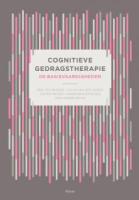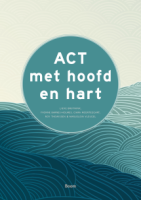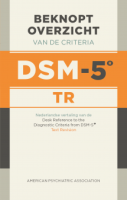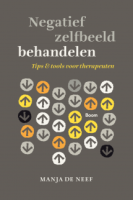Inhoud
De Nederlandstalige versie van de Automatic Thoughts Questionnaire–Revised (ATQ-R-NL)
Samenvatting
De Automatic Thoughts Questionnaire-Revised (ATQ-R; Kendall, Howard & Hays, 1989) werd vertaald naar het Nederlands. De betrouwbaarheid en validiteit van de schaal werd onderzocht in een groep Vlaamse studenten (N = 97; 89 vrouwen). De ATQ-R-NL vertoonde een goede betrouwbaarheid en bevredigende validiteit. Initiële gemiddelde scores en standaarddeviaties voor een klinische groep bestaande uit 26 patiënten (17 vrouwen) met een majeure depressie worden eveneens gerapporteerd. Het belang en de bruikbaarheid van de ATQ-R-NL voor zowel onderzoek als voor de klinische praktijk wordt beklemtoond.
Literatuur
- Beck, A.T. (1967). Depression: Clinical, experimental, and theoretical aspects. New York: Harper & Row.
- Beck, A.T., Rush, A.J., Shaw, B.F., & Emery, G. (1979). Cognitive therapy of depression. New York: Guilford Press.
- Beck, A.T., Ward, C.H., Mendelson, M., Mock, J.E., & Erbaugh, J.K. (1961). An inventory for measuring depression. Archives of General Psychiatry, 4, 561-571.
- Bentler, P.M. (1990). Comparative fit indexes in structural models. Psychological Bulletin, 107, 238-246.
- Boelen, P.A., Bout, J. van den, & Ploeg, E. van der (2002). Psychometrische eigenschappen van de Nederlandstalige versie van de Automatic Thoughts Questionnaire–Positive (ATQ-P). Gedragstherapie, 35, 269-286.
- Bouman, T.K., Luteijn, F., Albersnagel, F.A., & Ploeg, F.A.E. van der (1985). Enige ervaringen met de Beck Depression Inventory (BDI). Gedrag, 13, 13-24.
- Burgess, E., & Haaga, D.A.F. (1994). The Positive Automatic Thoughts Questionnaire ATQ-P) and the Automatic Thoughts Questionnaire–Revised (ATQ-P): Equivalent m easures of positive thinking. Cognitive Therapy and Research, 18, 15-24.
- Coursey, D.H., & Pandey, S.K. (2007). Public service motivation measurement: Testing any's proposed scale. Administration & Society, 39, 547-568.
- Flora, D., & Curran, P. (2004). An empirical evaluation of alternative methods of estimation for confirmatory factor analysis with ordinal data. Psychological Methods, 9, 466-491.
- Feldman, G.C., Joormann, J., & Johnson, S.L. (2008). Responses to positive affect: A self report measure of rumination and dampening. Cognitive Therapy and Research, 32, 507–525.
- Fredrickson, B.L. (1998). What good are positive emotions? Review of General Psychology, 2, 300-319.
- Hollon, S.D., & Kendall, P.C. (1980). Cognitive self-statements in depression: Development of an automatic thoughts questionnaire. Cognitive Therapy and Research, 4, 383-395
- Ingram, R.E., Kendall, P.C., Siegle, G., Guarino, J., & McLaughlin, S.C. (1995). Psychometric properties of the Positive Automatic Thoughts Questionnaire. Psychological Assessment, 7, 495-507.
- Ingram, R.E., & Wisnicke, K.S. (1988). Assessment of positive automatic cognition. Journal of Consulting and Clinical Psychology, 56, 898-902.
- Johnson, S.L. (2005). Mania and goal regulation: A review. Clinical Psychology Review, 25, 241-262.
- Kendall, P.C., Howard, B.L., & Hays, R.C. (1989). Self-referent speech and psychopathol ogy: The balance of positive and negative thinking. Cognitive Therapy and Research, 13, 583-598.
- Nezu, A.M., Ronan, G.F., Meadows, E.A., & McClure, K.S. (2000). Practioner's guide to empirically based measures of depression. New York: Kluwer Academic/Plenum Publishers.
- Nolen-Hoeksema, S., & Morrow, J. (1991). A prospective study of depression and posttraumatic stress symptoms after a natural disaster: The 1989 Loma Prieta earthquake. Journal of Personality and Social Psychology, 61, 115-121.
- Raes, F. (2010). De Nederlandstalige versie van de Brief Core Schema Scales (BCSS). Niet gepubliceerd manuscript.
- Raes, F., Daems, K., Feldman, G.C., Johnson, S.L., & Van Gucht, D. (2009). A psychometric evaluation of the Dutch version of the Responses to Positive Affect questionnaire. Psychologica Belgica, 49, 293-310.
- Raes, F., Hermans, D., & Eelen, P. (2003). De Nederlandstalige versie van de Ruminative Response Scale (RSS-NL) en de Rumination on Sadness Scale (RSS-NL). Gedragstherapie, 36, 97-104.
- Raes, F., Hermans, D., Van den Broeck, K., & Eelen, P. (2005). De Nederlandstalige versie van de Dysfunctional Attitude Scale – vorm A (DAS-A-NL). Gedragstherapie, 38, 285-294.
- Satorra, A., & Bentler, P.M. (1994). Corrections to test statistics and standard errors in covariance structure analysis. In A. Eye & C.C. Clogg (Eds.), Latent variable analysis: Applications for developmental research (pp. 399-419). Thousand Oaks, CA: Sage.
- Schermelleh-Engel, K., Moosbrugger, H., & Müller, H. (2003). Evaluating the fit of structural equation models: Tests of significance and descriptive goodness-of-fit measures. Methods of Psychological Research Online, 8, 23-74.
- Schotte, C., Maes, M., Claes, M., D'Hondt, P., & Cosyns, P. (1991). Cognitieve assessment van depressie: Klinische validatie van de Vlaamse ATQ-30. Tijdschrift Klinische Psychologie, 21, 123-133.
- Steiger, J.H. (1990). Structural model evaluation and modicfication: An interval estimation approach. Multivariate Behavioral Research, 25, 173-180.
- Van Groenestijn, M.A.C., Akkerhuis, G.W., Kupka, R.W., Schneider, N., & Nolen, W.A. (1999). Gestructureerd Klinisch Interview voor de vaststelling van DSM-IV As I Stoornissen [Structured Clinical Interview for DSM-IV Axis I Disorders]. Lisse, the Netherlands: Swets & Zeitlinger.
- Weissman, A.N., & Beck, A.T. (1978, November). Development and validation of the Dysfunctional Attitudes Scale: A preliminary investigation. Paper presented at the meeting of the American Educational Research Association, Toronto, Canada.
 © 2009-2025 Uitgeverij Boom Amsterdam
© 2009-2025 Uitgeverij Boom Amsterdam
De artikelen uit de (online)tijdschriften van Uitgeverij Boom zijn auteursrechtelijk beschermd. U kunt er natuurlijk uit citeren (voorzien van een bronvermelding) maar voor reproductie in welke vorm dan ook moet toestemming aan de uitgever worden gevraagd:
Behoudens de in of krachtens de Auteurswet van 1912 gestelde uitzonderingen mag niets uit deze uitgave worden verveelvoudigd, opgeslagen in een geautomatiseerd gegevensbestand, of openbaar gemaakt, in enige vorm of op enige wijze, hetzij elektronisch, mechanisch door fotokopieën, opnamen of enig andere manier, zonder voorafgaande schriftelijke toestemming van de uitgever.
Voor zover het maken van kopieën uit deze uitgave is toegestaan op grond van artikelen 16h t/m 16m Auteurswet 1912 jo. Besluit van 27 november 2002, Stb 575, dient men de daarvoor wettelijk verschuldigde vergoeding te voldoen aan de Stichting Reprorecht te Hoofddorp (postbus 3060, 2130 KB, www.reprorecht.nl) of contact op te nemen met de uitgever voor het treffen van een rechtstreekse regeling in de zin van art. 16l, vijfde lid, Auteurswet 1912.
Voor het overnemen van gedeelte(n) uit deze uitgave in bloemlezingen, readers en andere compilatiewerken (artikel 16, Auteurswet 1912) kan men zich wenden tot de Stichting PRO (Stichting Publicatie- en Reproductierechten, postbus 3060, 2130 KB Hoofddorp, www.cedar.nl/pro).
No part of this book may be reproduced in any way whatsoever without the written permission of the publisher.
Inloggen VGCt en VVGT
Leden van de VGCt en de VVGT loggen in via de site van hun vereniging. Als u op die site bent ingelogd als lid, vindt u daar een button naar het Tijdschrift voor Gedragstherapie.
English
Behavioral Therapy: Journal for Behavioral Therapy and Cognitive Therapy ISSN 0167-7454
Information in English can be found here.







